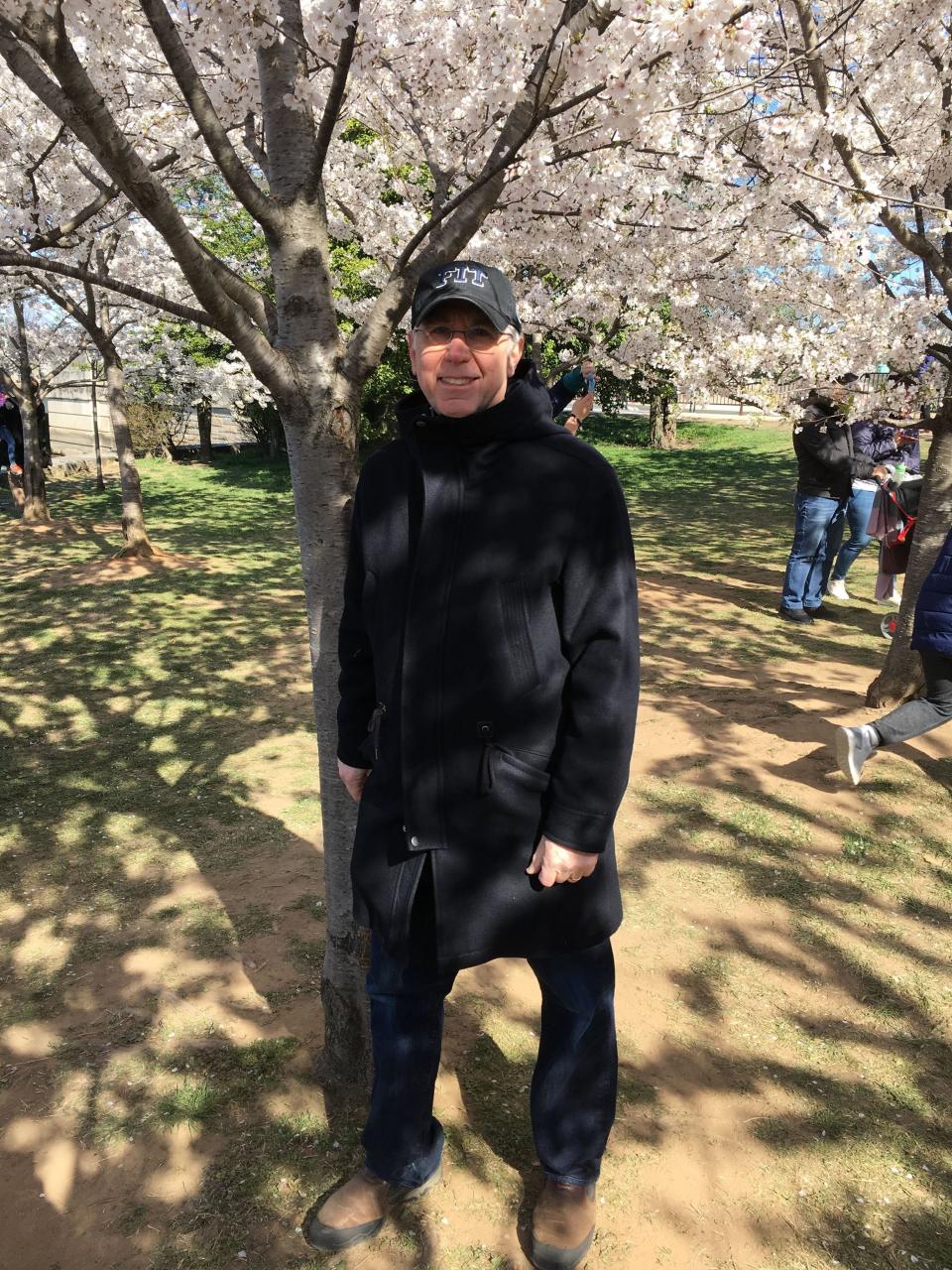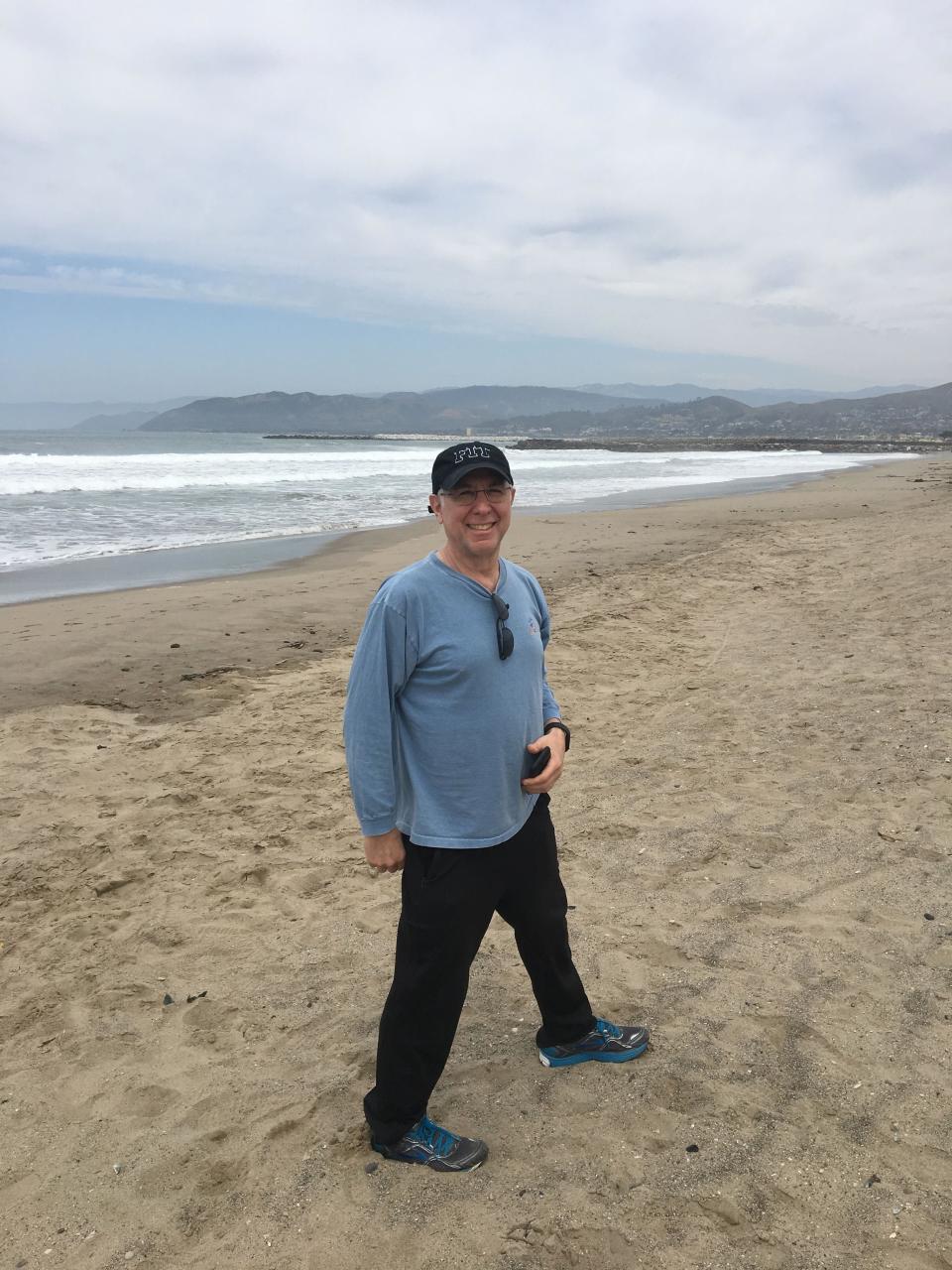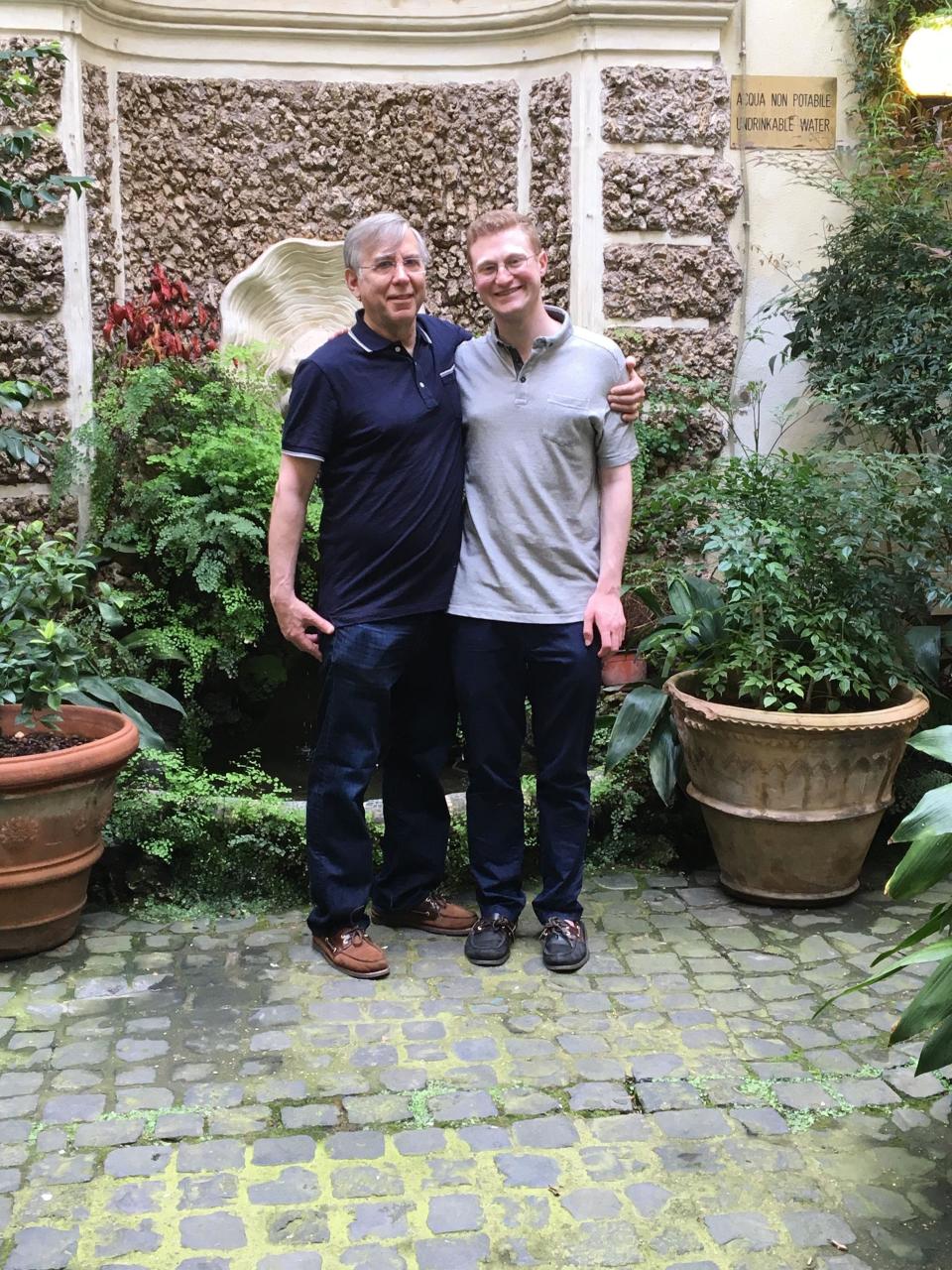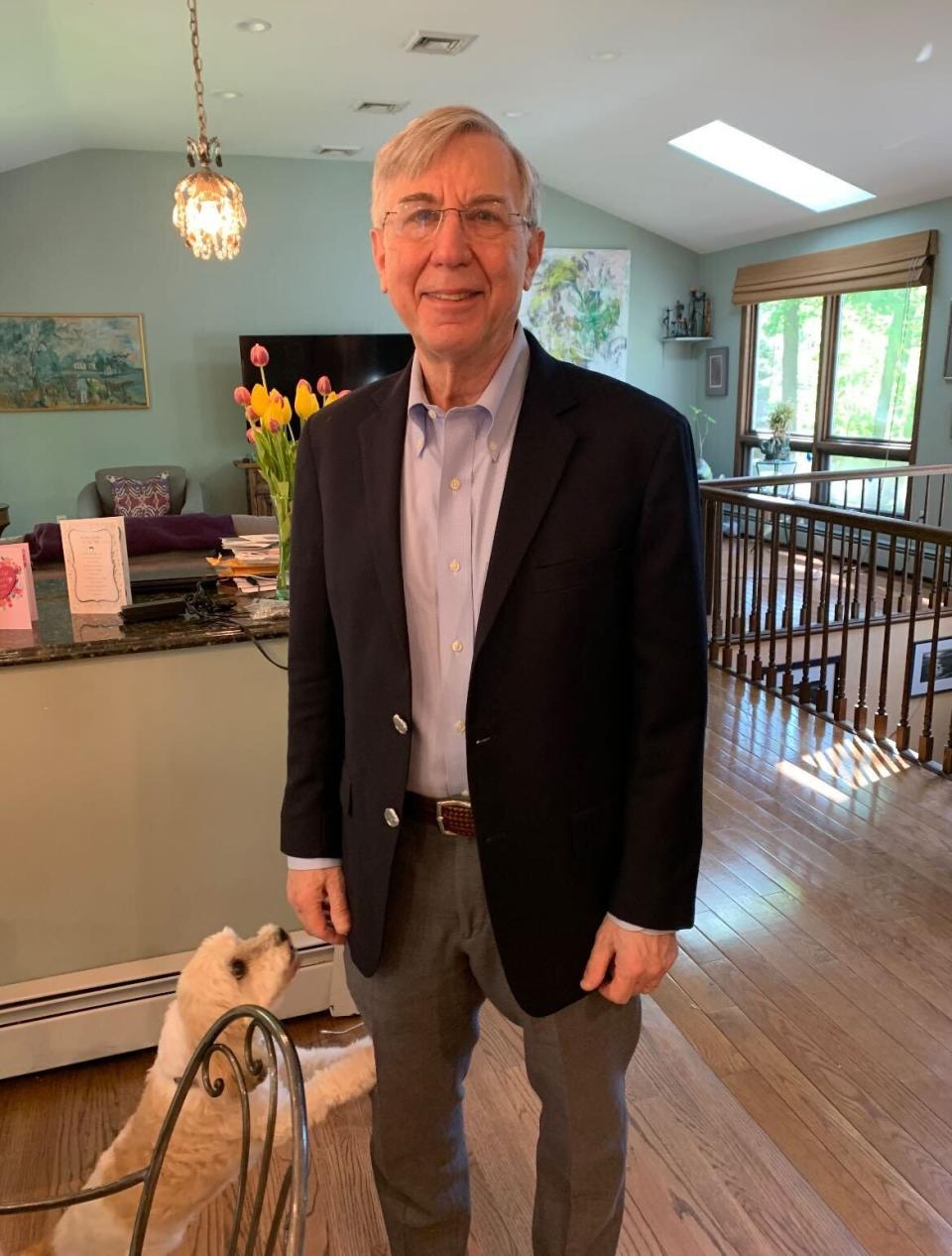My dad's illness, death forced me to miss last spring. A year later, I'm smelling flowers.
My dad died last spring. Two months after a doctor diagnosed him with a fatal, neurodegenerative prion disease.
I lost those two months, and I can't find them.
They're not in the photos on my phone. They're not in my text messages. They’re not in my dad's memorabilia under my bed, on my dresser, in my closet. They’re not on the train, not in the car.
They’re lost in time. In space. They’re dandelions, little white specks floating across the grass.
Spring is a time of rebirth, of resurgence, of flowers in bloom and pollen and sneezes. A time of change toward something brighter, warmer. This is the season we spring forward.
But last spring, I fell back. I lurched, I crumbled, I screamed and no sound left my voice. I simply sat on the edge of a cliff, waiting, waiting, waiting for the inevitable event to happen, the moment my dad would stop suffering, and I could breathe again.

It started with eight words in a text message that changed my life forever.
"Please give me a call when you can." March 28, 2022 at 4:03 p.m. When my mom told me that something was wrong with my dad, Dr. Mark Oliver, of Randolph, New Jersey. That he had trouble speaking. Aphasia. (Yes, what actor Bruce Willis was initially diagnosed with just days later. Goosebumps crawled up my arm then and now.)
"I’m going for a drive" became "I’m going for a car." Would he continue practicing medicine? Was his brain working normally? Was it holding memories?
We learned a few weeks later he had the "rapidly progressive and always fatal" Creutzfeldt-Jakob Disease. Over the course of seven weeks, between March and May, his body fell apart. He could walk the dog until he was gone longer than expected. He could empty the dishwasher until he couldn't pick up a fork. He could brush his teeth until he forgot how. He could get into bed until he couldn't lift up his own body.

He stopped functioning. Slowly then suddenly. Suddenly then slowly. All because of a single protein that we all have – the prion protein – that is normally not a problem. Until it misfolds.
"It's able to sort of template this domino effect of misfolding of (prion) molecules across the brain," Sonia Vallabh told me last year. I spoke to her and her husband Eric Minikel, both scientists studying prion diseases, about a month after my dad died. They’re researchers familiar with the disease all too well, because Vallabh inherited a prion disease-causing gene.
"It has no DNA, it has no RNA. It's just protein," my dad’s neurologist and friend Dr. Mark Diamond told me. "And yet, when it becomes this infectious type of prion protein, when it interacts with other normal prion proteins," they start misfolding. Diamond guessed it was CJD before anyone else. He didn’t want to scare us.
"What your father ended up having is such a rare bird," he said. "Not something we see very often. That was really out of the blue."

At least a rare bird is pretty. Nothing about this was pretty.
I know I technically lived through spring last year. I ran a cherry blossom race in Washington in April. I went for walks with my dad around our neighborhood, each time needing to monitor his movements more closely so he wouldn't wander too far into the street. I look at the dates on my phone and see that, yes, in fact, I kept track of time.
But I wasn't really living. I took a step back from work to sit with my dad during the day and try (ultimately futile) speech therapy exercises. I recorded conversations on my phone to play back so I could hang on to his voice for as long as possible. I watched home videos with my sister to remember what his voice used to sound like, before this disease butchered his brain so much every word sounded slurred and stagnant.
I cried, and cried, and cried. My mom cried. My sisters cried. My brother cried. My dad cried. One spring night, all of us together, in our parents' bed, when my dad let out a sob so loud I thought he laughed. When the totality of a life about to end hit my dad in an increasingly rare moment of lucidity. What else could he do but sob? What could any of us do but lie there and weep?

The day he died, May 16, 2022, it rained periodically. Shortly after the shock I went outside, wearing his boots. It smelled like rain. Smelled like spring.
Spring is a time of rebirth, of resurgence, of flowers in bloom and pollen and sneezes. A time of change toward something brighter, warmer. Spring knocks us forward and sends us into the future, unwieldy in our stature.
This spring, I'm moving forward and smelling flowers. But I know it's OK to lurch back too.
For more on grief
The first six months of grief: My dad died of an incurable, rare disease. Six months later, the grief endures.
Is our view of dying finally changing? From virtual reality afterlife games to death doulas
An in-depth look at grief and judgment: Ashley Judd's mother, Chrissy Teigen's baby and why we're so judgmental about grief
On sudden deaths: Lisa Marie Presley, Grant Wahl, Stephen 'tWitch' Boss and the trauma of a sudden death
When it's complicated: The complexity of mourning Queen Elizabeth II and questioning her legacy
This article originally appeared on USA TODAY: CJD: Grief, loss and when my dad's illness forced me to miss spring
